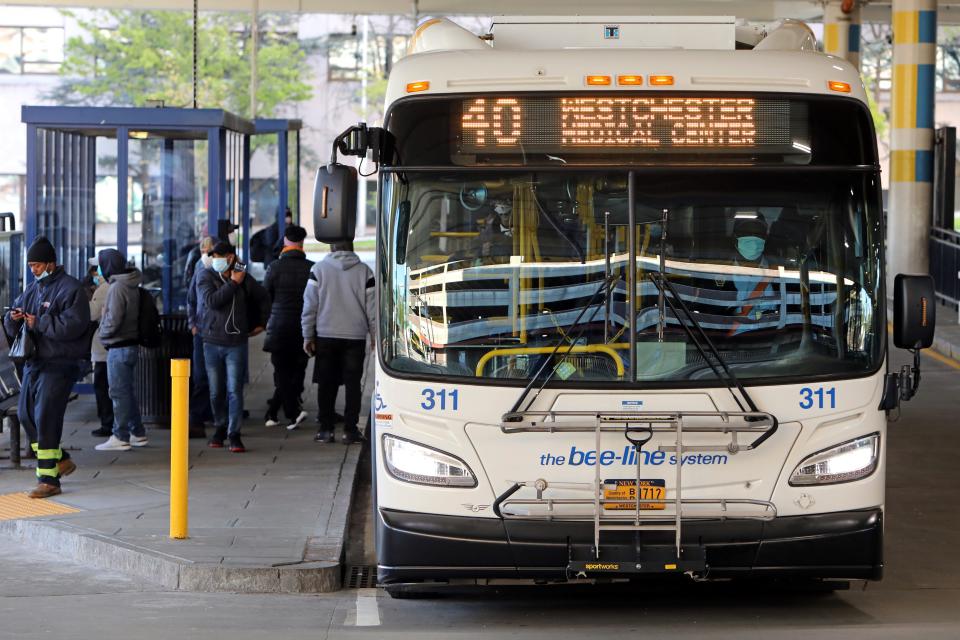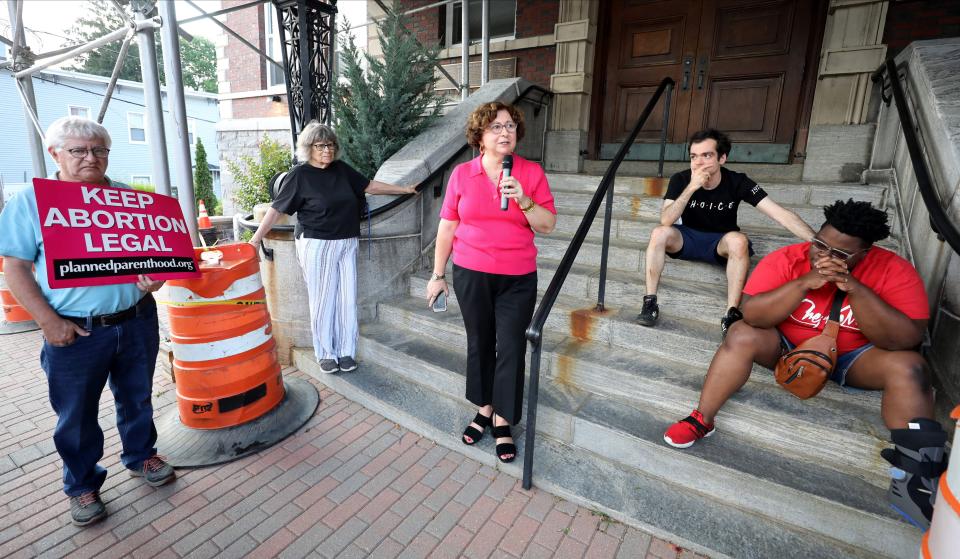Westchester gets 'bad deal' with Bee-Line, report says; see what's next for bus system
Westchester County is paying more for its bus service but getting less compared to other transit systems across the U.S., including Long Island, a new report concludes.
On Monday, the Tri-State Transportation Campaign, a nonprofit advocacy organization, issued its report about Westchester’s Bee-Line buses and its contract with Liberty Lines, a Yonkers-based private company that, for decades, has been the system’s operator.
“There’s no transparency or accountability built into the contract to protect Westchester County,” Talia Crawford, the lead author of the report, told the USA TODAY Network New York. “It’s ultimately a bad deal.”
Westchester has contracted with Liberty for more than 50 years, and the county is now planning a redesign of its bus system. Its five-year $638 million contract with Liberty is set to expire in December 2023.

Westchester airport parking: What extended deal would mean; legislators say they were misled
Pro-cop or anti-BLM? 'Thin Blue Line' flag in Irvington raises another community conflict
Playland: Operator hit with $3.6M tax bill from Rye after exemption revoked
What the report claims
About 15% of county residents don’t own a car, census data indicates. Bee-Line riders tend to be lower income and people of color.
The report built on a survey of riders by the Tri-State Transportation Campaign. A sample of about 140 riders said there were delays and inaccessible buses for people with disabilities.
Crawford and other organizers looked at 2019 and 2020 National Transit Database figures — before and during the pandemic — to compare Westchester’s system with others around the country. Nassau and Suffolk counties, on Long Island, were compared to Westchester based on the counties' population size, proximity to New York City as suburbs, and transit ridership.
Among its findings, the report cited factors that drove up costs for the county and wait times for passengers:
In 2020, Westchester paid more than $557,000 per peak vehicle, $57,000 more than Nassau and $164,000 than Suffolk. The operating cost per vehicle revenue hour was over $201, compared to $161 in Nassau and around $110 in Suffolk.
In 2019, 24% of Westchester’s bus miles had no passengers, compared to 14% for Nassau and 11% in Suffolk.
Bus scheduling procedures are inefficient and outdated, and include unnecessary time spent driving buses back to depots when drivers switch shifts.
“One-sided stipulations” in Westchester’s agreement may reduce the likelihood of another company bidding to compete for contracts with Liberty.
There’s limited oversight of Liberty due to limited staff in the county Department of Public Works and Transportation and irregular meetings by the transportation board.
The report also noted Westchester’s agreement with Liberty “contains no protections for the county nor any measures about the quality of service being delivered,” such as standards for timely service or safety, “which is unusual for any contract.”
What Liberty, Westchester said
In a statement, Liberty dismissed the Tri-State Transportation Campaign report.
"At this time, we believe the analysis contains too many historical, operational and logical inaccuracies to provide a meaningful response," said Melissa Santiago, a vice president at Liberty.
The county is considering a redesign of routes that would expand bus service in lower Westchester, with cuts in northern reaches of the county that would be served by micro-transit zones. Meanwhile, residents would get discounted tickets, at the same cost of Bee-Line, for traveling on Metro-North routes within Westchester.
In a statement, Catherine Cioffi, a spokesperson for County Executive George Latimer, pointed to the county recently contracting TransPro, a consulting firm, to assist in writing the request for proposal to operate Bee-Line buses. The county also has a working group to study nationwide best practices led by county Operations Director Joan McDonald, who served as a state Department of Transportation commissioner.
She added that the report didn’t mention the county's suspension of bus fares this summer, meant to help riders with inflation costs, or Westchester's continued efforts to electrify the bus fleet to combat climate change.
The county, she said, “is open to hearing all ideas and suggestions. That is why it is often best to simply pick up the phone and continuing the dialogue, as opposed to calling a press conference.”

Seeking competition
County Legislator MaryJane Shimsky, the chair of the Board of Legislators’ public works and transportation committee, said the county executive has primary responsibility over contracts. The county must reevaluate mass transit to better address climate change, more dense housing, and rising costs, she added.
“We are nearing, if not exactly at the point, where we are going to have to ask ourselves whether we are doing what we need to do to provide transit options to the people of this county,” said Shimsky, who is running for a state Assembly seat in the 92nd District, which covers parts of Westchester County.
Contracting operators to handle public transit systems is common and often has benefits, said David Bragdon, the executive director of TransitCenter, a nonprofit that reviewed the Tri-State Transportation Campaign report. In a 2017 report, TransitCenter reviewed bids to operate public transit systems London, Stockholm, Los Angeles County and New Orleans.
“It has to be done with competition, otherwise it’s the worst of both worlds,” Bragdon said after a press conference Monday unveiling the report outside of the White Plains Metro-North Station. “Westchester has the worst of both worlds.”
Eduardo Cuevas covers race and justice for the USA TODAY Network of New York. He can be reached at EMCuevas1@gannett.com and followed on Twitter @eduardomcuevas.
This article originally appeared on New York State Team: Westchester Bee-Line bus deal 'bad' for county, report says

